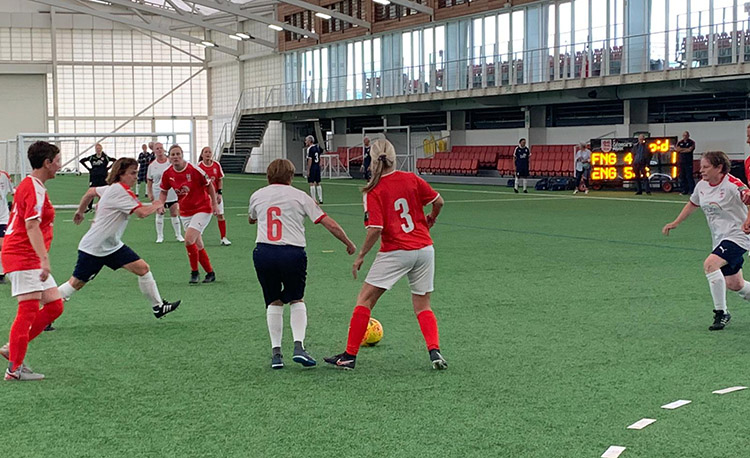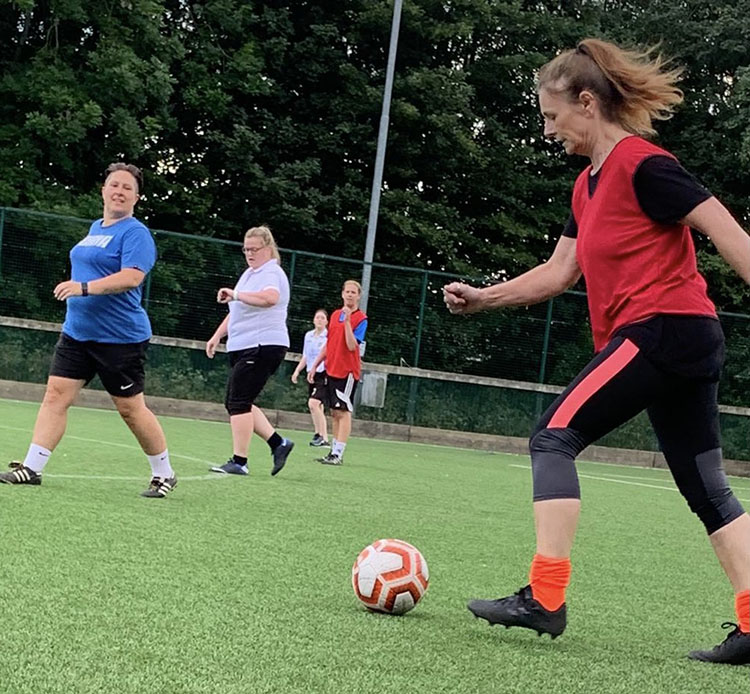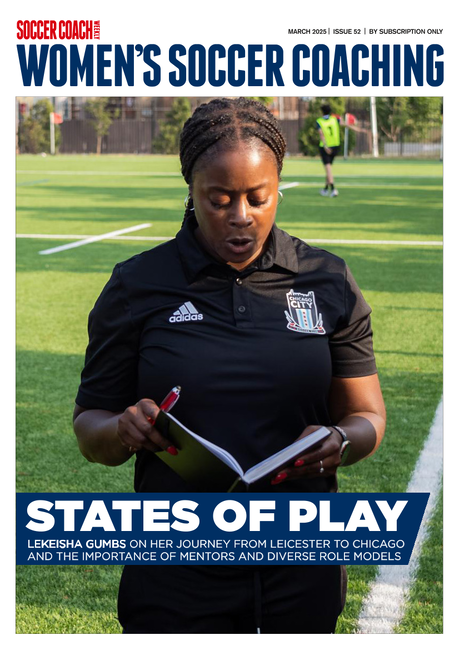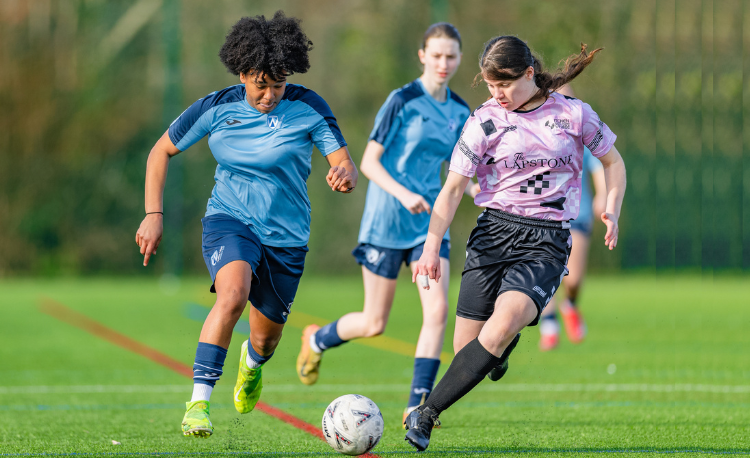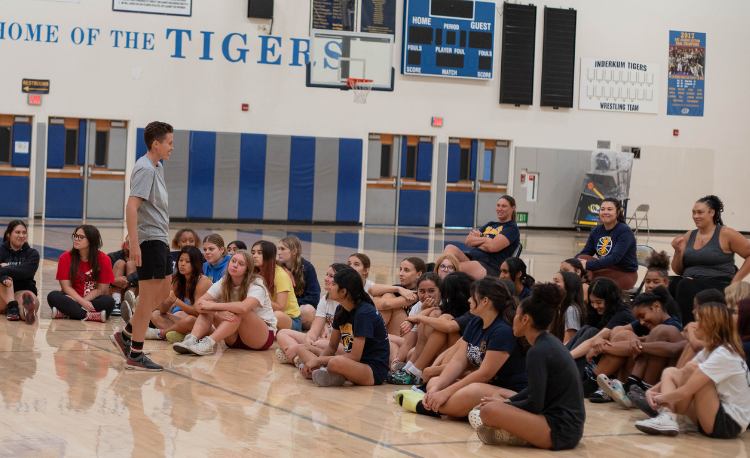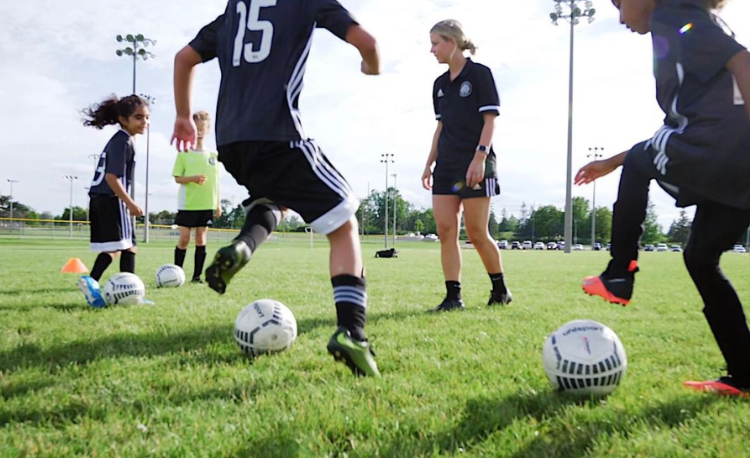You are viewing
1 of your 3 free articles
Walk on the mild side?
Coaching Adviceby Stuart Langworthy
A slower pace it may be, but walking football is growing quickly. Hannah Duncan meets England Women's Over-40s coach Stuart Langworthy
For one branch of the beautiful game, life really does begin at 40.
Walking football - the six-a-side variant where running is banned - has been helping former players stay in the game well beyond their 'peak' years.
Just as crucially, it has been a physical and mental health lifeline for many, with more than 60,000 participants in England alone and played in more than 50 other countries.
There is also an elite level, with England fielding eight national teams - including women's over-40s, over-50s and over-60s
We spoke to Stuart Langworthy - assistant manager of England women's over-40s and manager of their men's over-60s, to discuss how the sport works, what the running game can learn from it and its exciting future...
WSC: How did you first get involved in women's walking football?
SL: "The Walking Football Association was formed in 2016 and I became England men's over-60s manager in 2018.
"One of the aims of forming the England teams was to raise the profile of the sport. The women's game started growing rapidly so, in 2019, we decided to help raise the profile by creating women's England teams.
"We held trials and selected teams at over- 40 and over-50 levels. I was working part- time so had the capacity, plus the energy and enthusiasm, to run the trials and the over-40s team until a permanent manager was found. I am now assistant manager."
WSC: What are the key rules unique to walking football?
SL: "The main differences are no running and no contact, the ball must remain below head height, the teams are six-a-side and the goalkeeper's area is D-shaped.
"The goalkeeper is not allowed out of this area and outfield players are not allowed in."
WSC: What is the typical demographic of the players - are they older people who have been advised to get more exercise?
SL: "Competitive walking football starts at over-40 for women and over-50 for men.
"Historically it was mainly over-50s but more and more younger players, particularly with long-term health conditions, are taking it up and some are even being 'prescribed' walking football."
WSC: Are there specific technical and tactical aspects unique to walking football, or physical demands that some people might not expect?
SL: "Walking football is a very technical game, which comes as a surprise to many.
"Most people new to walking football are surprised at how much of a workout it is..."Most of the coaching concentrates on having a good first touch, passing to feet, turning, finding space, anticipating and intercepting. At England training days, we work on shape.
"Walking at pace, without running, is important and most people new to the game are surprised at how much of a workout it is."
WSC: Are there any aspects of coaching walking football you would take into a typical coaching environment?
SL: "Having fun is one of the most important aspects at any level.
"We are talking about mostly mature people who never thought they would still be playing sport at their age, so fun and banter on and off the pitch is extremely important.
"At all levels, making sure everyone is warmed up is essential. Passing, first touch, movement and communication are coaching aspects that can always be worked on."
WSC: How do you feel the opportunity to play walking football has impacted the players you work with?
SL: "Walking football is literally giving people a new lease of life - the opportunity to play a game they used to play but with different rules in a safer environment.
"It allows them to link up again with players they used to play with, as well as make new friends.
"Most thought they would never get the chance to play the game at their age so they really make the most of it - and even fewer get the opportunity to represent their country, so they really are proud. They are role models and ambassadors for the sport."
WSC: As England over-40s coach, you must work with a high standard of player. Where do these players come from - are they former pros or top-level players? Do you think that, in future, there will be dedicated walking footballers, or maybe it will be a natural progression for soccer players when they reach a certain age?
SL: "With the women’s over-40s side, most have played 11-a side football and some still do.
"Some who play walking football have played for big clubs. With the men's under- 60s, I have [European Cup winner] Alan Kennedy of Liverpool and Graham Collier, ex-Nottingham Forest.
"There does seem to be some reluctance from ex-pros to take up walking football – maybe they are burnt out or don’t see it as football. That is not necessarily a bad thing, as it gives more opportunities to others who maybe did not make the grade in their younger days.
"I think as the sport gathers pace there may be more interest from ex-pros. People are certainly taking the sport more seriously than it used to be."
WSC: How have your experiences coaching the men’s and women’s walking football teams differed?
SL: "Coaching the women has proved very different but no less enjoyable than coaching the men.
"The women seem more keen to learn and open to being coached. Some of the men have played football all their lives and picked up bad habits that are difficult to change.
"The women’s game is less physical but running is an issue, particularly for younger players just out of the 11-a-side game.
"I love working with both national teams. It is such an honour. The biggest gains, though, can be seen with women at club level.
"Many played hockey when they were younger, because football was not so accessible. For them, they are learning a new sport, new skills and really are playing for fun, friendship and fitness."
WSC: What is the state of walking football in England?
SL: "The game is in a good place and growing fast. More people are realising the health and wellbeing benefits of our sport. "We are currently developing the WFAi - with the i standing for impairment. I have seen first-hand how powerful football can be to people living with long-term health conditions, such as Parkinsons.
"I was fortunate and honoured to be asked to run the We Are Undefeatable Virtual Walking Football team, which was a challenge but one of the most rewarding things I have ever done.
"We hope the sport will soon be recognised by Sport England as 'unique' - and then it will grow further. Maybe one day it will be in the Olympics.
"There is a World Nations Cup in May 2022, which has twice been postponed because of Covid-19."
"They're learning a new sport, new skills and really are playing for fun and fitness..."
WSC: What are the upcoming challenges for the national women's team and the sport itself?
SL: "One of the biggest challenges facing our sport is the standardisation of rules, as some countries have developed their own.
"The biggest issue facing the national team is the lack of credible opposition. We, in England, are leading the way - we now have eight national teams and are way ahead of most other countries.
"So far, we have been to Gibraltar, Hong Kong, Malaysia, Singapore, Italy, Wales, Crete, Guernsey and Rwanda, and have worked with Spain, the Basque Country, Germany, Ireland, Tanzania, Kenya and others.
"We are developing regional teams so the better players can play with and against better players.
"The issue facing the women's game, in particular, is that there are still only a relatively small number of female-only sessions.
"Most women play in mixed sessions in their clubs, which they enjoy, but most really enjoy playing with and against other women.
"The number of women-only sessions is growing but it needs to continue to grow. A lot of women play for fitness reasons and some are quite young, which makes entering competitions an issue - there needs to be more of an 'open age' approach to women's walking football at club level."
Related Files
WSC-011-walk-on-the-mild-side.pdfPDF, 1.5 MB
WSC: What advice would you give to coaches either looking to get involved with an existing walking football team or set up their own?
SL: "Go for it. Expect it to be tough at first - some nights you will not get enough players so you might need to adapt, so play 4v4 with small goals and no goalkeeper.
"Use the free WFA guide, affiliate to the WFA and get the free extensive toolkit. Finally - go and have some fun. It is a great social game for fun, friendship and fitness."
Newsletter Sign Up
Newsletter Sign Up
Discover the simple way to become a more effective, more successful soccer coach
In a recent survey 89% of subscribers said Women's Soccer Coaching makes them more confident, 91% said Women's Soccer Coaching makes them a more effective coach and 93% said Women's Soccer Coaching makes them more inspired.
*includes 3 coaching manuals
Get Inspired
All the latest techniques and approaches
Women's Soccer Coaching offers proven and easy to use soccer drills, coaching sessions, practice plans, small-sided games, warm-ups, training tips and advice.
We've been at the cutting edge of soccer coaching since we launched Soccer Coach Weekly in 2007, creating resources for the grassroots youth coach, following best practice from around the world and insights from the professional game.
